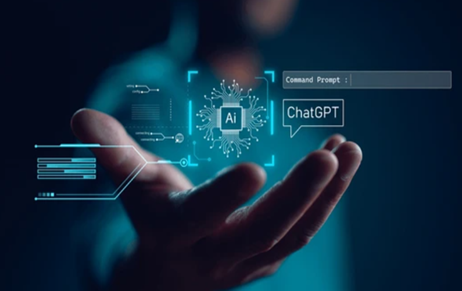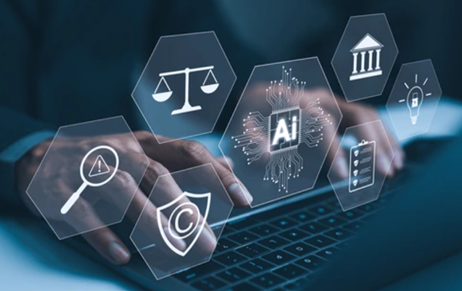In August 2023, India enacted the Digital Data Protection Act, 2023, dedicated to protecting privacy…
Intellectual Property in the Workplace: The Battle for Employee Creations
India embraces an increasingly changing workforce amid tremendous technological progress and new models of work so the convergence of intellectual property rights and employee innovation has become the reason of legal debate. In today’s world, there has been considerable growth in remote jobs, gig-economy work and artificial intelligence tools which introduce new complexities with the ownership of worker creations. It has brought about an increase in patent, copyright and trade secret disputes, making it crucial for the businesses to clearly highlight who owns the IP in an employment agreement.[1] This can be best illustrated with some of the recent battles over whether rights in newly developed software or innovative design belong to the employee or the employer, often culminating in expensive lawsuits and affecting workplace politics. In the meanwhile, businesses need draft legal and binding employment contracts that are clear on choosing between securing the protection of their intellectual property and preserving the rights and freedom of their workers. Against this backdrop, courts are grappling with cases involving restrictive covenants like non-compete and confidentiality clauses as they balance fair labour practices against corporate interests. With the increasing prevalence of AI tools and hybrid work models, the traditional understanding of ownership and IP becomes obscure.[2] Employees increasingly use personal devices and software while performing the task assigned to them. It calls for continuous dialogue and adjustments within labour relations as well as IP law to ensure smoother operation by employers as well as employees in such complex situations.

Ownership over creations by employees in India particularly the software and designs are surfacing increasingly in times of rapid technological advancements and innovation. The issue again here raises questions over well-defined ownership rights and the possible eventual implications it can have on workplace dynamics and morality. A landmark case in this regard is Indian Performing Right Society Ltd. v. Sanjay Dalia[3] case decided by the Delhi High Court on the issue of copyright ownership of musical works generated by employees wherein the court determined that the employer does not have copyright over works created by employees while they are employed, unless specifically stated otherwise in an employment contract.
This judgment highlights that it is essential for enterprises that agreements specify provisions related to ownership of IP rights. Incidentally, unclear terms can lead to expensive litigation and disputes. When an employee utilizes personal resources outside of his job scope to produce an invention, he owns it whereas the employer owns an innovation made by an employee while he is employed. If the employment contracts are not comprehensive enough to handle the issue, their status would not be clearly defined, creating a grey area where conflicts develop.
The Copyright Act provides that unless otherwise specified, an employee’s work produced while they are employed is typically owned by the employer. Extremely recent disputes in the software development space frequently comprise allegations of misappropriation or a failure to attribute credit, so explicit clauses in employment agreements concerning ownership of IP come out explicitly as expressively important. The effects of such disputes have far-reaching ripples as they can drastically change the dynamics in the workplace and affect levels of morale among the employees. Treating employees as being undervalued or that their contribution might not be appreciatively acknowledged starts creating a problem with diminishing levels of motivation and losing confidence. A culture of mistrust rather than trust and cooperation begins to creep in which later leads to obstacles in creation of innovation.
Ownership of intellectual property developed by employees while they are employed is the subject of disputes of most of the businesses. There may be misunderstandings that result in disputes between employers and employees when contracts are unclear about who is entitled to inventions made while a person is employed. To avoid such risks, employers should make sure that clear assignment clauses exist within their contracts regarding IP.
The clauses must explicitly declare that any inventions, designs, or works created by the employee during their tenure at the company are owned by the employer. Such clarity not only protects the interests of a firm but also elucidates the set of expectations within the employees and therefore avoids some forms of miscommunication. The clear instructions will help employees have a distinct indication of their rights and responsibilities in a working environment regarding IP, thus promoting transparency between the employer and employees. The work done using personal resources or AI tools should be clarified to avoid controversy.[4] The threshold of balancing in between non-compete and confidentiality clauses should be managed in such a manner that non-compete clauses are reasonable in scope and duration while confidentiality agreements are precise and targeted toward protecting trade secrets rather than restricting employee mobility.
Author: Khushi Aditya, in case of any queries please contact/write back to us via email to chhavi@khuranaandkhurana.com or at IIPRD.
[1] Harshwardhan & Keshri S, Trade secrets: a secret still to unveil, Journal of Intellectual Property Rights, 13 (2008) 208-17.
[2] K. Hristov, “Artificial Intelligence and the Copyright Dilemma”, 57 (3) IDEA The Journal of the Franklin Pierce Center for Intellectual Property 431 (2017).
[3] AIR 2015 SUPREME COURT 3479.
[4] M. D. Esposti, F. Lagioia, et.al., “The Use of Copyrighted Works by AI Systems: Art Works in the Data Mill”, 11 European Journal of Risk Regulation 51–69 (2020).



